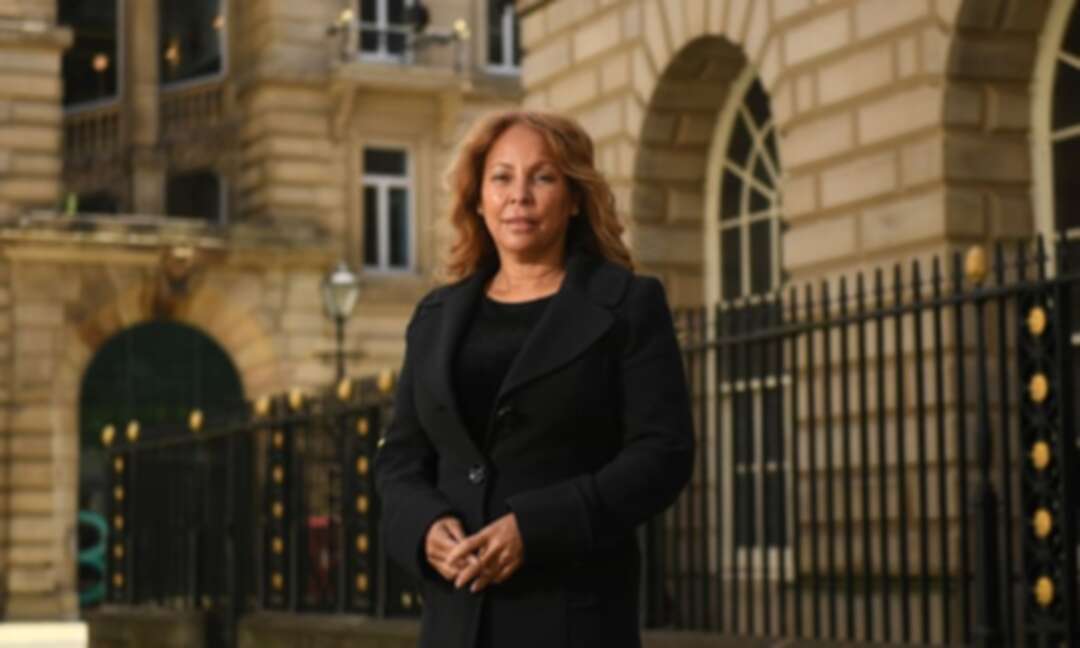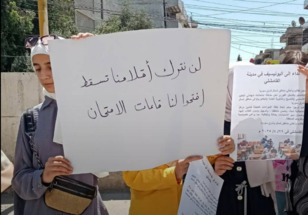-
Liverpool mayoral race in chaos as Anna Rothery sues Labour

Party is warned it could lose control of city, as councillor removed from its shortlist takes legal action
A councillor is suing the Labour party after she was removed from the shortlist to become the party’s mayoral candidate in Liverpool, along with two other female councillors.
The legal action – brought by Anna Rothery, who holds the ceremonial position of lord mayor of Liverpool – is the latest messy chapter in what one local MP described as the “shitshow” surrounding Labour’s handling of one of its most loyal cities, which has not elected a Tory MP since the 1970s.
The party in Liverpool has been in turmoil since December, when Joe Anderson, Labour’s incumbent mayor, was arrested as part of a police investigation into corrupt property deals. He denies all wrongdoing but stepped down, prompting a rush to find a successor to contest May’s elections.Labour has now selected two relatively inexperienced councillors for the role: 25-year-old Anthony Lavelle, who works for a local MP, and 50-year-old Joanne Anderson (no relation), a business consultant who spent 10 years working for the Crown Prosecution Service on community engagement.Both warn that Labour could lose Liverpool, with Lavelle urging the party to “get a grip” and warning “we don’t have a divine right to run this city”. Anderson believes Labour’s reputation has been “extremely damaged” in recent months in Liverpool and reminds the party that although there is currently just one non-Labour MP in the whole of Merseyside (a Conservative in Southport), the city has never had a “Labour council when we have had a Labour government in”. During the New Labour years the Lib Dems controlled City Hall. Winning Liverpool “is not a fait accompli”, she cautioned.Anderson describes herself as a “leftwing socialist”, who voted twice for Jeremy Corbyn to become Labour leader. She is black and believes having a black mayor would be “tremendous” for representation in the multicultural city. Lavelle voted for Yvette Cooper and then Owen Smith and says his candidacy is a “clean break from the past”.
They face strong competition from independent candidate Stephen Yip, an Anglo-Chinese Liverpudlian who has run a local children’s charity since the 1970s. Despite voting Labour his whole life and describing himself as a “pragmatic socialist”, the 66-year-old argues Liverpool needs “a reset” and has become a “laughing stock”. He believes that it will take a non-partisan approach to restore trust in Liverpool’s politicians and get the city back on track. The son of a Chinese sailor and white Liverpudlian, he said having a mixed race mayor would be “a real positive for the city”.
The Liverpool mayoral election uses the supplementary vote system, where voters enter both a first- and second-choice candidate. If no one gets more than 50% of the vote the second choices are allocated to the top two candidates. This has sometimes made it easier for independents to win, as seen recently in Middlesbrough and nine years ago in Bristol.
Rothery was barred from running to be the city mayor two weeks ago when the Labour party suddenly had a change of heart about all three women it had originally selected.
The party has consistently refused to reveal why she was removed from the shortlist, along with two of Anderson’s former deputies, Ann O’Byrne, and current acting mayor, Wendy Simon.
Rothery is black, and various senior politicians on the left of the Labour party suggested racism had played a role in her deselection, with the former shadow home secretary Diane Abbott tweeting: “Faced with the possibility of a black female socialist winning, party bureaucrats have scrapped the selection process & barred her from standing. An appalling abuse of party democracy.”
But Rothery’s legal claim is for “breach of contract”, with the publicly available case summary making no mention of racial discrimination. It was filed on Thursday against David Evans, the general secretary of the Labour party.
Joanne Anderson has attracted the support of Kim Johnson, MP for Liverpool Riverside. As the city’s only black MP, she told the Guardian she was happy to support a “sister”, who has done “an awful lot of work around race equality and has a good reputation as a hard-working local councillor”.
While she conceded that the Labour selection process had been “a shitshow”, she had little time for accusations of a “stitch-up” against the left. She also put out a statement noting that she had spent her career calling out racism wherever she saw it, including in the Labour party, but didn’t believe that it played a role.
Most of the high-profile voices coming to Rothery’s defence came from outside the city, she said, noting that Rothery had few supporters among black-led organisations in Liverpool.
Rothery did have some supporters closer to home, including Liverpool MPs Dan Carden and Ian Byrne, who signed an open letter on Tuesday telling Keir Starmer that if Rothery’s legal case proved she was treated unfairly, she must be reinstated on the ballot. “The party’s actions would otherwise appear discriminatory and further damage the party’s reputation and its standing with BAME communities,” they wrote.
But Johnson argues all the three candidates could easily put the speculation to bed, as they will know why they weren’t allowed to reapply, based on the questions they were asked when re-interviewed.
A Labour spokesperson said the party did not comment on ongoing legal action but said: “In Joanne and Anthony, Labour members in Liverpool have the choice between two excellent candidates who are both rooted in their communities and have outstanding campaigning and organisational skills.
“They offer the city a new leadership, which is proud of its strong values and diverse communities. They are both fully committed to moving Liverpool forward out of the coronavirus crisis and fighting for the resources that the city desperately needs.”
Labour party members in Liverpool will vote for their favoured candidate from next week, with the result expected on 29 March.
source: Helen Pidd
Levant
You May Also Like
Popular Posts
Caricature
BENEFIT Sponsors BuildHer...
- April 23, 2025
BENEFIT, the Kingdom’s innovator and leading company in Fintech and electronic financial transactions service, has sponsored the BuildHer CityHack 2025 Hackathon, a two-day event spearheaded by the College of Engineering and Technology at the Royal University for Women (RUW).
Aimed at secondary school students, the event brought together a distinguished group of academic professionals and technology experts to mentor and inspire young participants.
More than 100 high school students from across the Kingdom of Bahrain took part in the hackathon, which featured an intensive programme of training workshops and hands-on sessions. These activities were tailored to enhance participants’ critical thinking, collaborative problem-solving, and team-building capabilities, while also encouraging the development of practical and sustainable solutions to contemporary challenges using modern technological tools.
BENEFIT’s Chief Executive Mr. Abdulwahed AlJanahi, commented: “Our support for this educational hackathon reflects our long-term strategic vision to nurture the talents of emerging national youth and empower the next generation of accomplished female leaders in technology. By fostering creativity and innovation, we aim to contribute meaningfully to Bahrain’s comprehensive development goals and align with the aspirations outlined in the Kingdom’s Vision 2030—an ambition in which BENEFIT plays a central role.”
Professor Riyadh Yousif Hamzah, President of the Royal University for Women, commented: “This initiative reflects our commitment to advancing women in STEM fields. We're cultivating a generation of creative, solution-driven female leaders who will drive national development. Our partnership with BENEFIT exemplifies the powerful synergy between academia and private sector in supporting educational innovation.”
Hanan Abdulla Hasan, Senior Manager, PR & Communication at BENEFIT, said: “We are honoured to collaborate with RUW in supporting this remarkable technology-focused event. It highlights our commitment to social responsibility, and our ongoing efforts to enhance the digital and innovation capabilities of young Bahraini women and foster their ability to harness technological tools in the service of a smarter, more sustainable future.”
For his part, Dr. Humam ElAgha, Acting Dean of the College of Engineering and Technology at the University, said: “BuildHer CityHack 2025 embodies our hands-on approach to education. By tackling real-world problems through creative thinking and sustainable solutions, we're preparing women to thrive in the knowledge economy – a cornerstone of the University's vision.”
opinion
Report
ads
Newsletter
Subscribe to our mailing list to get the new updates!





















